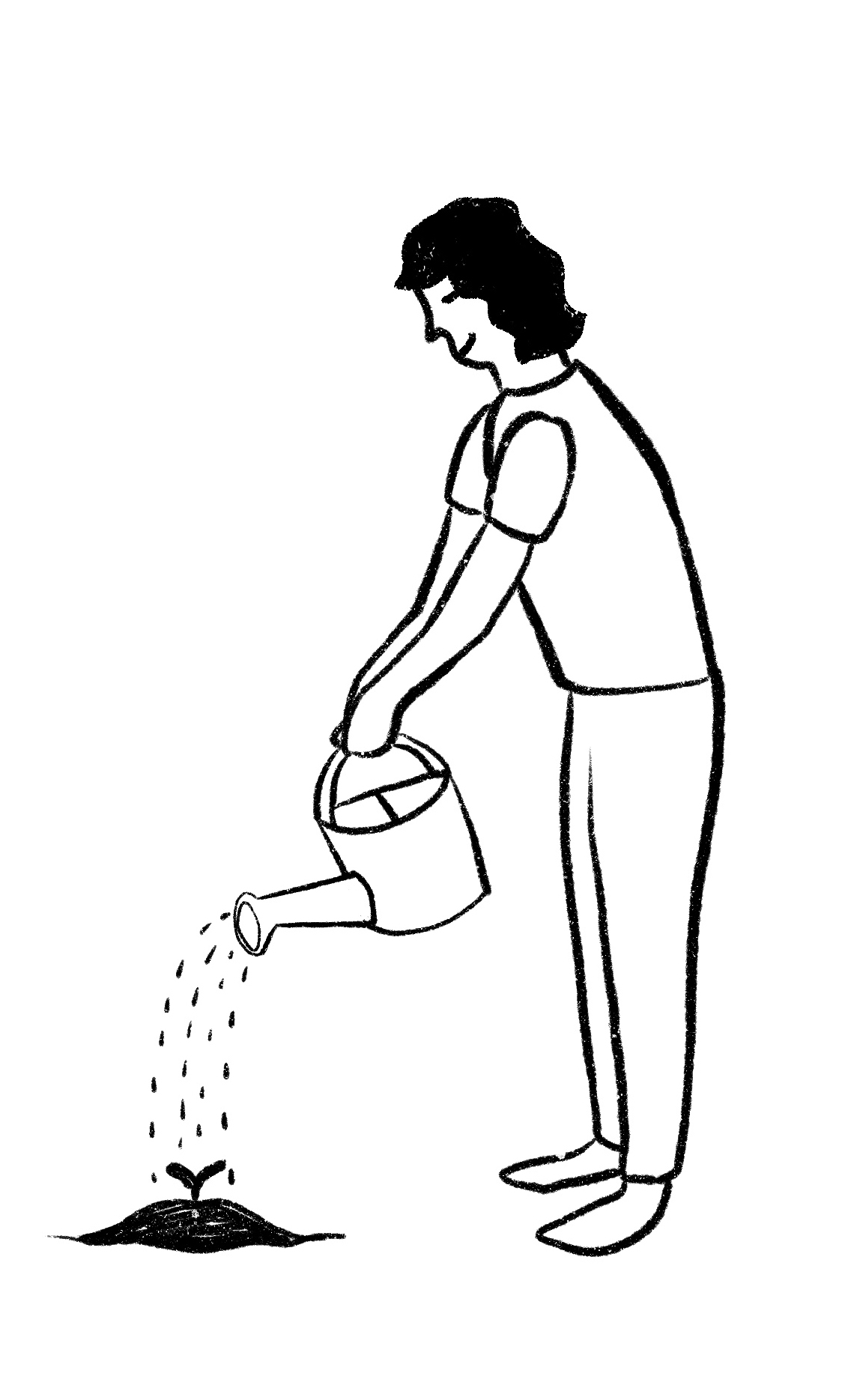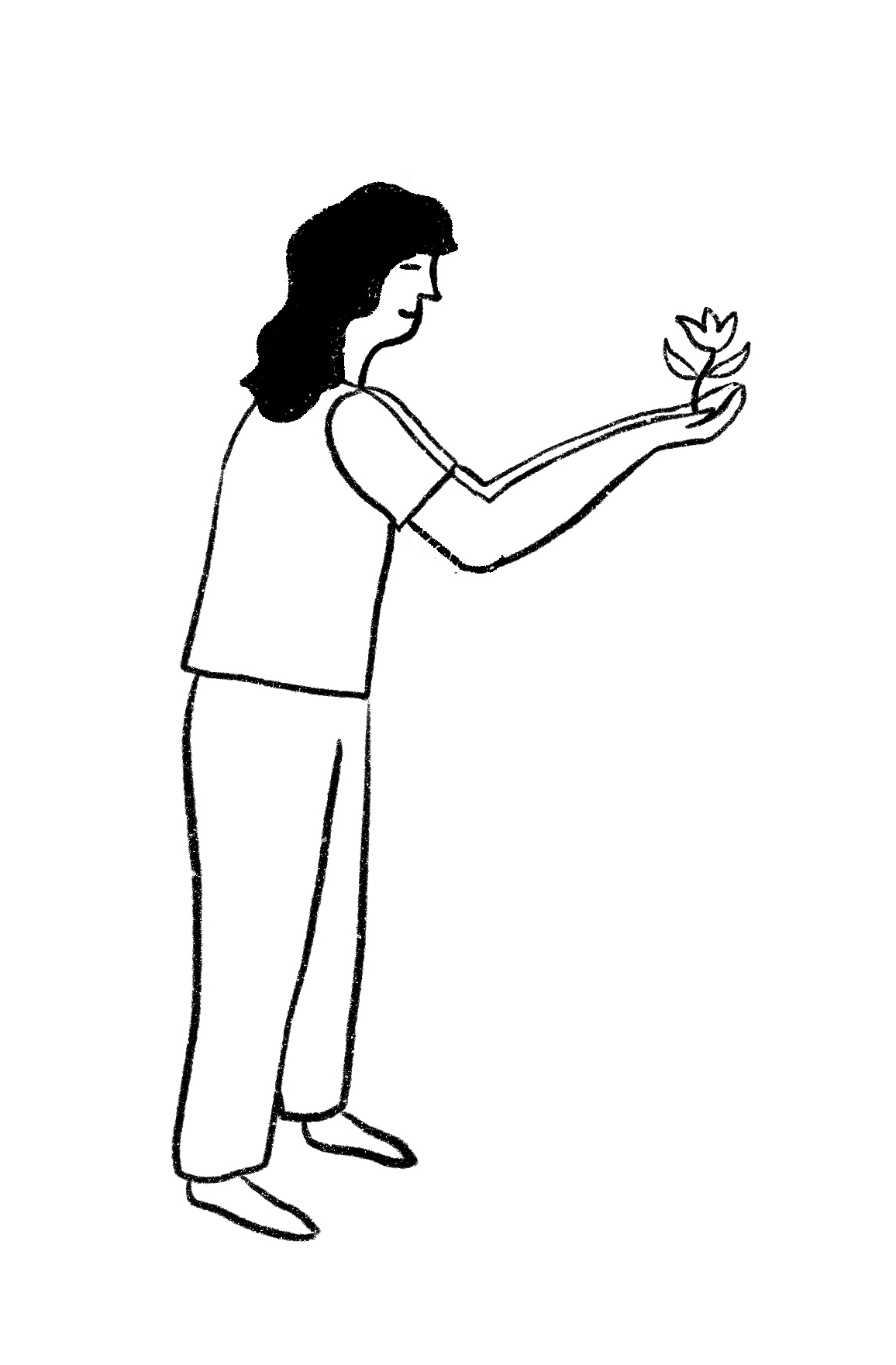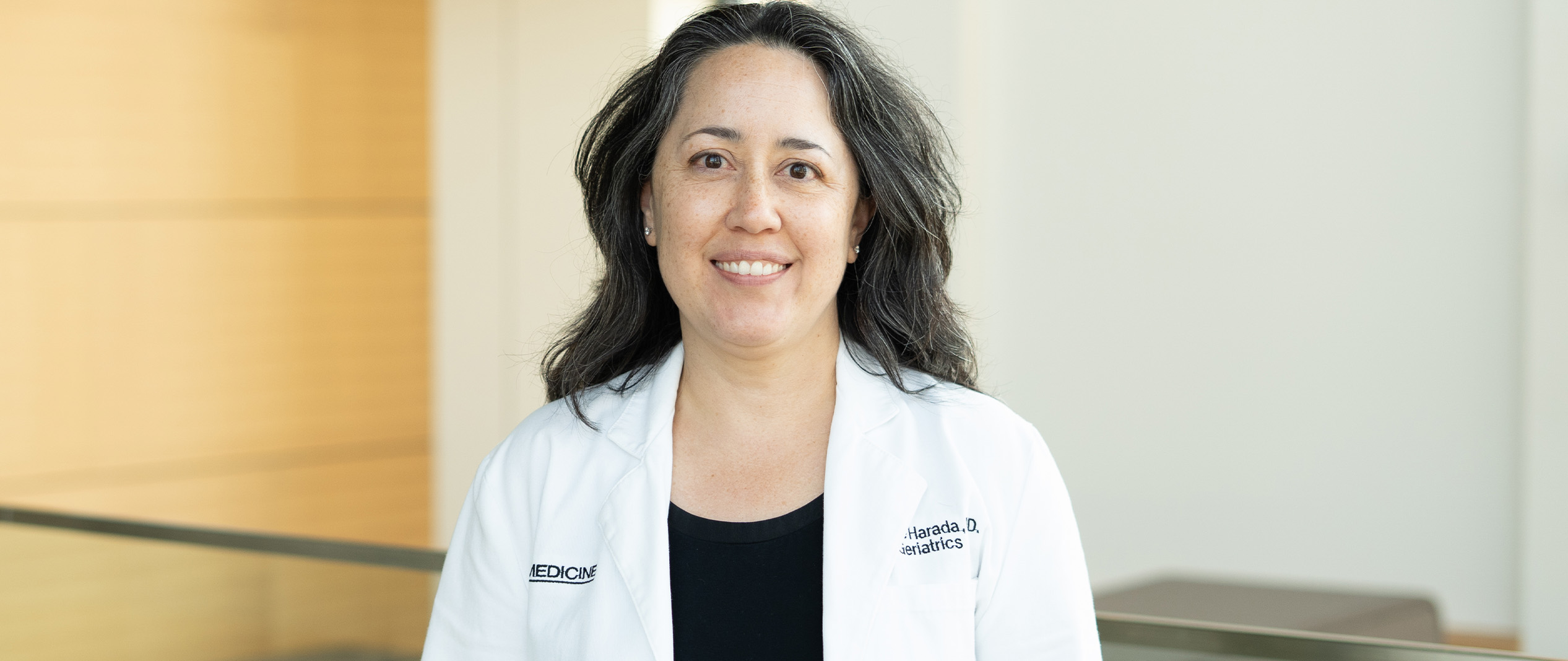The grand rounds session at the Heersink School of Medicine is quiet and charged with attention. Caroline Harada, M.D., professor in the Department of Medical Education, watches as a student unfolds the story of a man from rural Alabama who—afraid of hospitals—grew out his hair to conceal a lump on his head. When his wife discovered it, she took him to the doctor. The diagnosis was grim: stage 4 meningioma (a tumor that grows from the membranes surrounding the brain and spinal cord) with metastases to the spine.
 Harada listens intently, guiding students through cases that reveal how social and emotional factors complement textbook knowledge and deeply influence patient care. For Harada, this kind of learning, rooted in humility and connection, isn’t just a teaching method, but the foundation of humanism in medicine.
Harada listens intently, guiding students through cases that reveal how social and emotional factors complement textbook knowledge and deeply influence patient care. For Harada, this kind of learning, rooted in humility and connection, isn’t just a teaching method, but the foundation of humanism in medicine.
Harada’s understanding of that foundation deepened early in her own medical training, when her husband was diagnosed with bipolar disorder. During his first mental health crisis, she recognized the emergency department nurse from her own past shifts as a young physician. A stern woman not prone to small talk, the nurse offered Harada a hug and Harada broke down.
“No amount of knowledge could help me in that moment. What I needed was empathy,” Harada recalled. That experience reshaped her career. She shifted from general geriatrics to dementia care, driven by a desire to care not just for patients, but also for caregivers who shoulder the burden quietly and often invisibly.
Later, her path turned to medical education. As associate dean for Strategic Initiatives, Medical Education in the Heersink School of Medicine, Harada founded the Office of Service Learning to bridge classroom knowledge and community needs. Her students teach healthy cooking at a farmers’ market in a food desert neighborhood, counsel women on heart health and smoking cessation at a women’s shelter, and exercise with clients at a disability services center, reducing the stigma around intellectual disabilities. Harada emphasizes that these community partnerships aren’t one-off projects, but ongoing year-round efforts to build trust and collaboration.
 In 2024, medical students Katie McMillan, Hana Habchi, and Karnika Mehrotra approached Harada with a plan: to expand Equal Access Birmingham (EAB), Heersink’s student-run free clinic, with a Street Medicine Clinic for unhoused residents at George Ward Park. Harada initially hesitated, aware of the challenges, but the students’ persistence won her over. The clinic launched with guidance from Emergency Medicine faculty Erin Shufflebarger, M.D., MSPH, and Christine Shaw, M.D. Each month, unhoused residents gather at the park, not just for medical care but to be seen and heard.
In 2024, medical students Katie McMillan, Hana Habchi, and Karnika Mehrotra approached Harada with a plan: to expand Equal Access Birmingham (EAB), Heersink’s student-run free clinic, with a Street Medicine Clinic for unhoused residents at George Ward Park. Harada initially hesitated, aware of the challenges, but the students’ persistence won her over. The clinic launched with guidance from Emergency Medicine faculty Erin Shufflebarger, M.D., MSPH, and Christine Shaw, M.D. Each month, unhoused residents gather at the park, not just for medical care but to be seen and heard.
“This work is humanism in action,” Harada said. She teaches students to meet people where they are—with dignity and respect—and to understand patients’ backgrounds and the many factors that shape their health. The approach is working: The students have earned the trust of many park residents, who are also seeing improvements in their health.
When Harada received the 2024 Arnold P. Gold Foundation Humanism in Medicine Award from the Association of American Medical Colleges, she was surprised. “I thought it was a mistake,” she laughed. “So many deserve it.” Still, the honor affirms the values she champions: empathy, listening, and humility. For Harada, humanism is the heart of medicine. “Doctors care for people, not patients. Without humanism, there is no care,” Harada said. But it also helps the doctors. “It gives meaning to our work and helps prevent burnout during tough times.”
With hope for the future, Harada wants humanism to remain the foundation of medical practice long after her career ends. She encourages her students to remember their “why” when challenges arise—and to listen to what their patients are telling them. At the free clinic, watching students connect with patients, Harada sees the principle in action: Listening isn’t just part of care—it is care.
Read other stories
